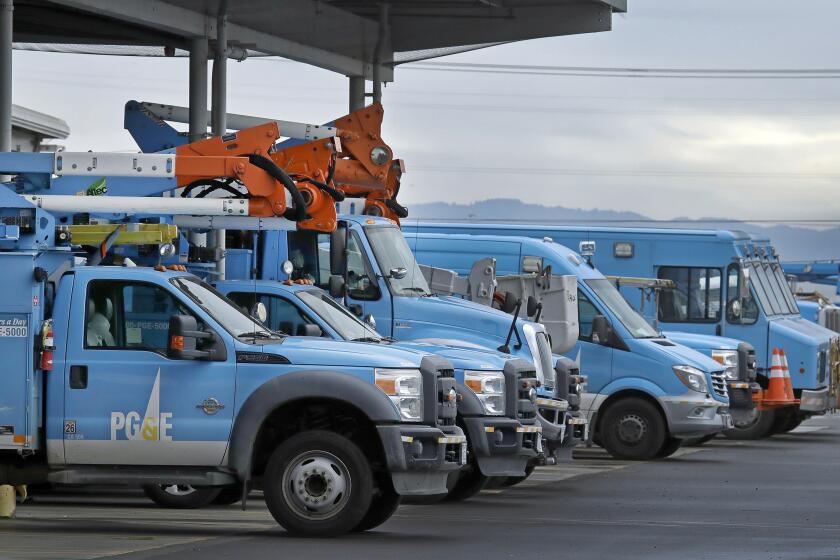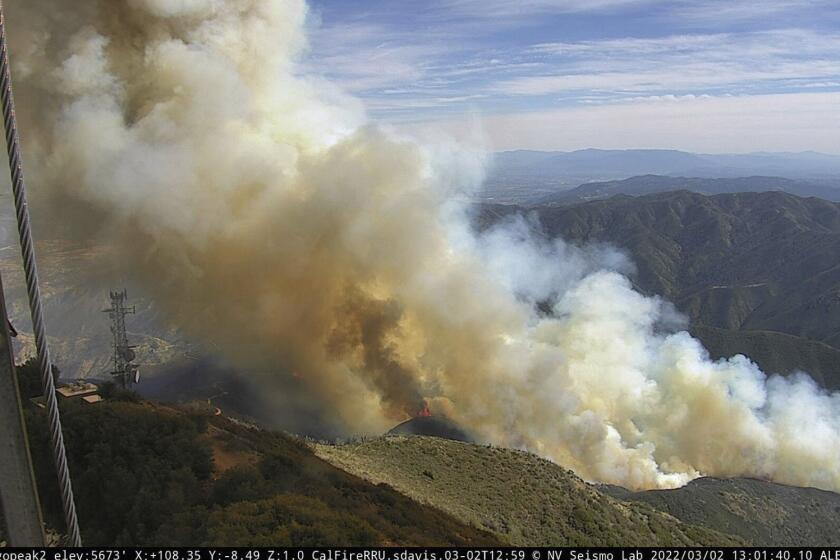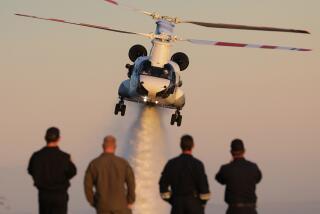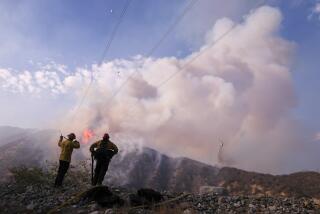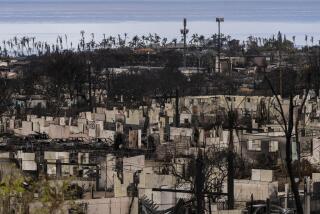PG&E cited over use of ‘heli-saw’ in Bay Area park, safety concerns raised
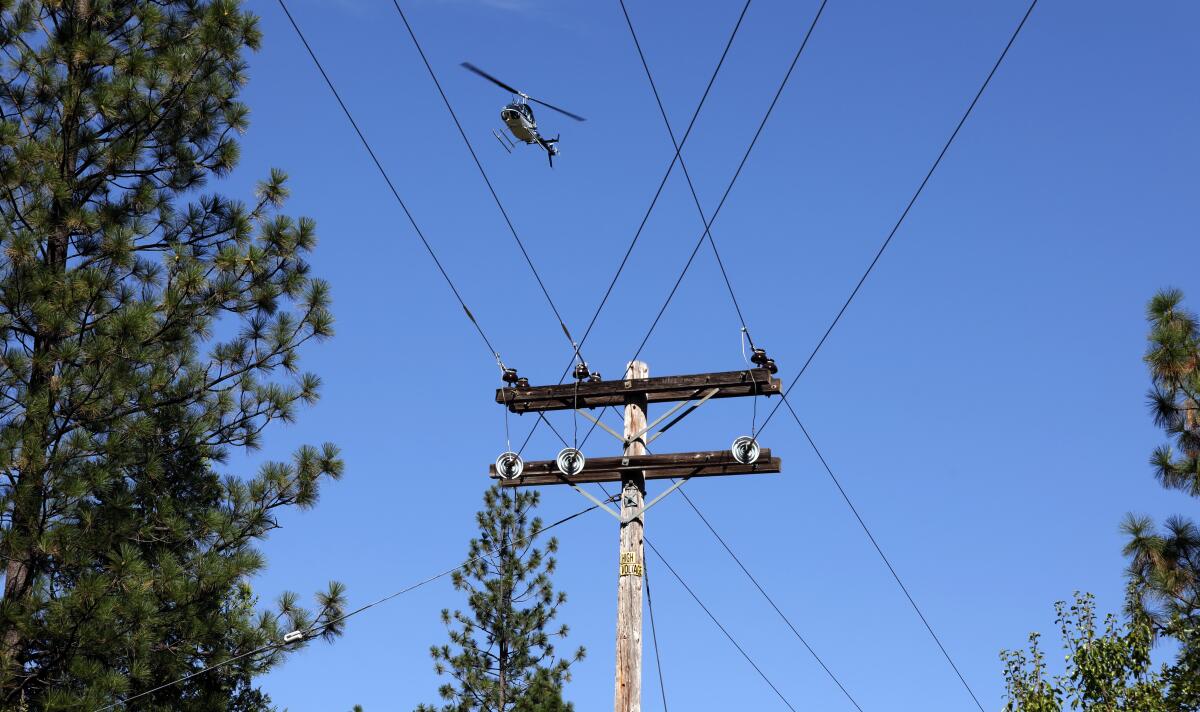
Pacific Gas & Electric Co. was cited after using a massive “heli-saw,” consisting of eight whirring blades suspended from a helicopter, to trim trees without warning in a San Mateo County park this winter.
The California Department of Forestry and Fire Protection issued the utility giant a notice of violation dated Dec. 16, 2021, for carrying out the work without permission along a transmission line in Wunderlich Park.
It’s one of 17 such violations Cal Fire’s San Mateo-Santa Cruz Unit has issued to PG&E and its contractors since October 2020 for not complying with the state public resources code, said Richard Sampson, a Cal Fire forest practice inspector who is leading an investigation of the utility.
During an inspection Dec. 15, Sampson observed “numerous” branches with 2- to 8-inch circumferences that were severed by the aerial saw and allowed to fall from 150 feet above, according to the violation notice.
“No trail or area closures had been placed or signs put out to keep the public out of the area, as would have been the case if the County knew about the operation,” Sampson wrote in the notice.
PG&E admitted its contractor mistakenly extended the aerial saw’s use several hundred feet into Wunderlich Park while it was being used on adjacent private property, but it denied it put anyone in danger. Only limbs were pruned; no trees were cut down, said Deanna Contreras, a spokesperson for PG&E.
PG&E is set to emerge from felony probation, and the judge who oversaw it slams the utility for setting wildfires. PG&E says it is a safer company now.
“Ground crews both preceded and followed the route (and were in constant communication with the pilot) of the aerial saw, so there were no safety issues related to the pruning within the park property, nor was the public in danger at any time,” Contreras said in an email.
Moreover, she said, ensuring that trees don’t touch power lines “is essential to maintaining safe, reliable electric service.”
A tree that fell into one of PG&E’s power lines west of Cresta Dam sparked the massive Dixie fire last year, ultimately searing more than 960,000 acres in five Northern California counties as it burned clear across the Sierra Nevada, state investigators found.
PG&E touted the heli-saw in an early February news release as a new vegetation management tool to lower wildfire risk. In the release, written by Contreras, the saw is described as “a safe and efficient way to prune trees” in hard-to-reach areas, such as snowy or muddy areas that could be difficult to access in a vehicle.
“An aircraft on your property with a big dangling piece of machinery is kind of scary right off the bat,” a man wearing a bright safety vest says in a video embedded in the release. “However, this is by far the safest and complete treatment that you could have to fully clear a right-of-way.”
PG&E, Contreras said, is aware of issues raised by Cal Fire and San Mateo County Parks over vegetation maintenance work conducted on a transmission-line corridor that falls within Wunderlich, as well as Huddart Park in Woodside.
The utility is drafting a response to both agencies, she said.
The fire that began near the Holy Jim Trail sent up a plume of smoke that could be seen across Southern California.
However, a larger fight may be brewing.
Sampson said Tuesday that the utility could face civil or criminal charges for repeated violations in the region related to timber operation and fire tool rules. He said he drafted a case report detailing the violations, which is under review.
It’s an escalation from the notice of violations, which Sampson said are considered the lowest level of enforcement.
The case report, he said, could turn into a civil penalties case or be referred to the district attorney or attorney general.
Contreras said the utility is in talks with Cal Fire and other state authorities to address “the conflicts that exist between PG&E’s state and federal obligations to perform and complete its required wildfire safety work and CAL Fire’s belief that we need to obtain a harvest document or utility right-of-way exemption permit in order to do so.”
The utility’s top concern, she said, is that obtaining the permits would often “actually prohibit or delay” its ability to perform wildfire mitigation work, such as vegetation clearance.
More to Read
Sign up for Essential California
The most important California stories and recommendations in your inbox every morning.
You may occasionally receive promotional content from the Los Angeles Times.

